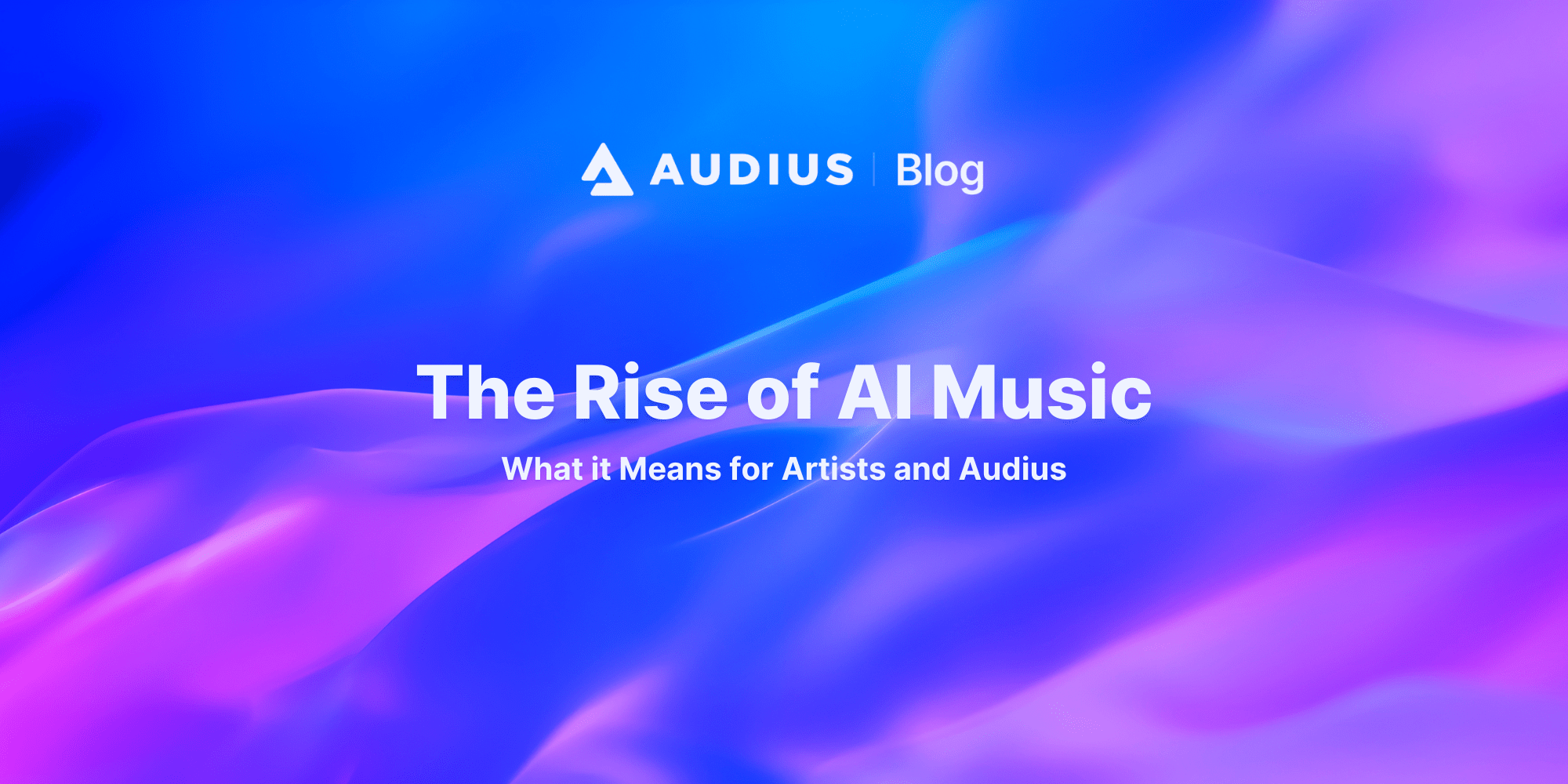
Artificial intelligence has been around for decades, but its recent leap into the hands of everyday users has stirred a wave of cultural and creative anxiety. For many artists, the question isn’t just whether AI will automate their jobs in studios or behind instruments, but whether it might eventually replace human creativity as a whole.
That fear came into sharp focus recently, when an AI-generated band, racked up over a million streams on Spotify without listeners realizing the music wasn’t made by humans. The band created an entire online persona with photographs, multiple albums, and trending catchy tunes.
However, the backlash came pouring in, with much of it centering around a now-familiar concern: consent. Were real artists’ songs and styles used to train these models, and if so was permission granted?
Audius CEO Roneil Rumburg says that’s where the line must be drawn. “The bright line here, in our view, is around training data: did the creators of the music consent, directly, to that training happening?” he explains.
“Platforms should not be deciding on behalf of their users that their music can be used for training purposes, the way SoundCloud attempted to do.”
The outcry-reaction to the AI-generated band, the Velvet Sundown, likely stems from this lack of transparency, Rumburg continued.
“Artists are frustrated that their work is being co-opted by unscrupulous operators of AI music models. The similarities between Velvet Sundown’s artwork and sound to adjacent bands is hard to deny, but it’s difficult to prove training data included those things without more transparency from tools.”
However, the music industry has always been at the forefront of adopting new technologies, whether it was the electric guitar, synthesizers, MIDI sequencing, or digital audio workstations.
The goal shouldn’t be to ban this technology (AI) from music altogether. On the contrary, Audius sees it as a new creative tool, and one with the power to democratize music-making and expand creative potential.
“Like every digital audio creation tool that predated it, AI will do two things: lower the bar for more people to create music and create leverage for existing creators to work more effectively,” Rumburg says.
To support this vision responsibly, back in 2023 Audius introduced an AI Music Attribution Tool that helps artists and listeners trace whether a track was generated using AI and how. It’s a step toward clarity in a space that’s moving fast and not always with transparent ethics.
While the tools we use to make music are continually evolving, the heart of music remains the same; artists will always matter. As long as creators are given the choice and control they deserve, AI can be a complement to creativity, not a threat to it.
As the music industry continues to keep pace with technology, platforms like Audius are poised not only to disrupt the status quo and reshape the way artists and fans connect, but also create a more transparent and collaborative experience.
Let's create the future of music, together.